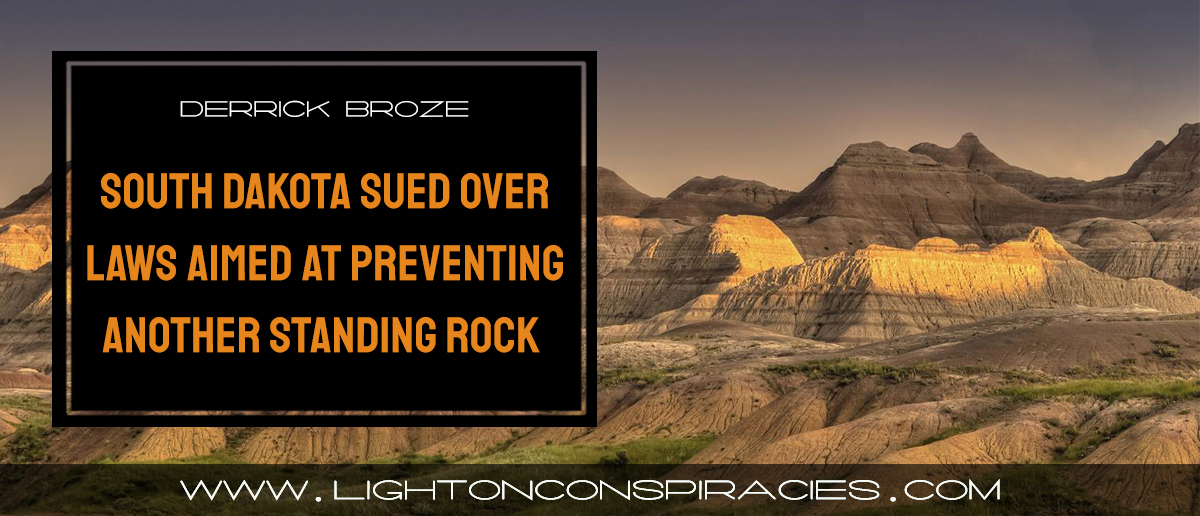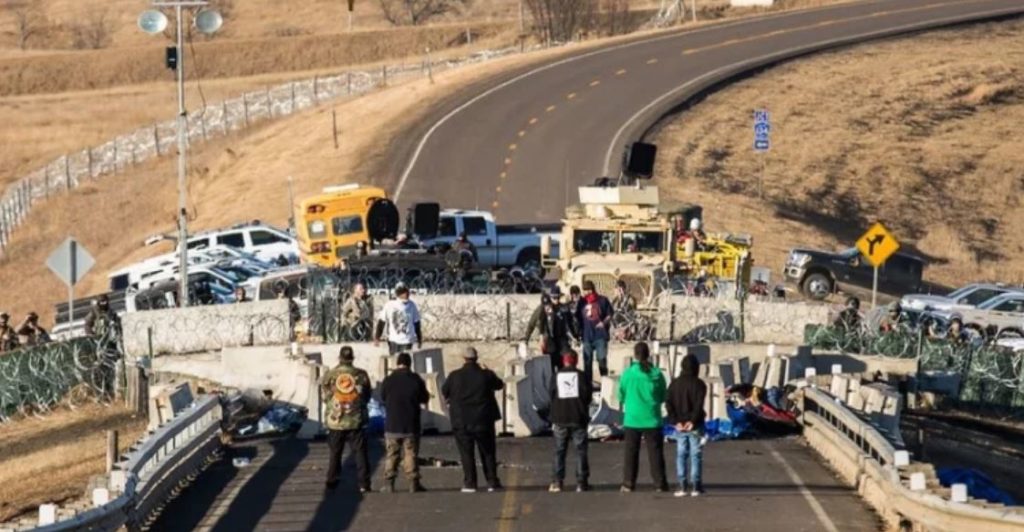Civil liberties organizations and activists are pushing back against new laws which criminalize protests and free speech related to pipeline projects.
In late March, a coalition of Native activists, the American Civil Liberties Union (ACLU), and the ACLU of South Dakota filed suit against the State of South Dakota in an effort to repeal recently passed state laws aimed at curbing “rioters” during the upcoming construction of the TransCanada Keystone XL pipeline. South Dakota Senate Bill 189 and SB 190 have created controversy due to the potential to prevent peaceful and legal protest of environmental projects.
Senate Bill 189, also known as the Riot Boosting Act, grants the state the authority to sue any individual or organization for what they call “riot-boosting,” or encouraging and/or participating in acts of force or violence. SB 190 sets up funding to pay for state, county, and local police to combat potential pipeline protesters. This means that any individual who is attending a protest or rally against the Keystone Pipeline (or other future pipeline) could become subject to civil or criminal penalties, whether they engage in violence or not. The plaintiffs in the suit argue that the language of the bill is vague and does not clearly define what type of conduct or speech is considered “riot-boosting” or encouraging a riot.
We're going to court to block the state from enforcing @govkristinoem's newly enacted Riot Boosting Act and related laws, which are unconstitutional attempts to suppress protests, including of the Keystone XL pipeline. #HiFromSD #KXL #NoKXLDakota pic.twitter.com/QAZz78XapE
— ACLU of South Dakota (@ACLUSouthDakota) March 28, 2019
The Washington Times reports that South Dakota Gov. Kristi Noem has stated that the legislation will help shut down protests of the Keystone XL Pipeline and prevent a battle between protesters and police as was seen during the construction of the Dakota Access pipeline in North Dakota in 2016. The Times notes that Noem believes protesters were funded by “out-of-state liberal donors, such as George Soros.” South Dakota State Sen. John Wiik said the introduction of the new laws “stems from what happened up at Cannonball, North Dakota.”
Plaintiffs on the lawsuit include the NDN Collective, the Indigenous Environmental Network, the Sierra Club, Dakota Rural Action, Dallas Goldtooth of the Indigenous Environmental Network, and Nick Tilsen, President and CEO of the NDN Collective.
“Gov. Kristi Noem’s legislation is yet another way to promote Big Oil interests and prevent dissent by making protesters subject to legal action,” says Kim Pate, Vice President of NDN Collective.
The NDN Collective recently wrote that the broad language in SB 189 means that “anyone that contributes to a protest, whether through monetary donations, donations of supplies, or even through organizing a page on social media, can be held liable, and have civil and criminal penalties for supporting a protest that the state deems ‘violent‘.” Further, the law states that individuals or organizations can be held liable even if they are not on the ground in South Dakota. The NDN Collective also states that the law would allow TransCanada to redirect money seized from protesters and organization towards pipeline construction.
The ACLU of South Dakota has also condemned the new laws, stating, “We’re prepared to stand on the front lines and defend your right to peacefully protest and express your opinions freely.”
Featured image credit: Emma Fiala
Derrick is the founder of TCRN, where this article first appeared.
This article was sourced from The Mind Unleashed.













